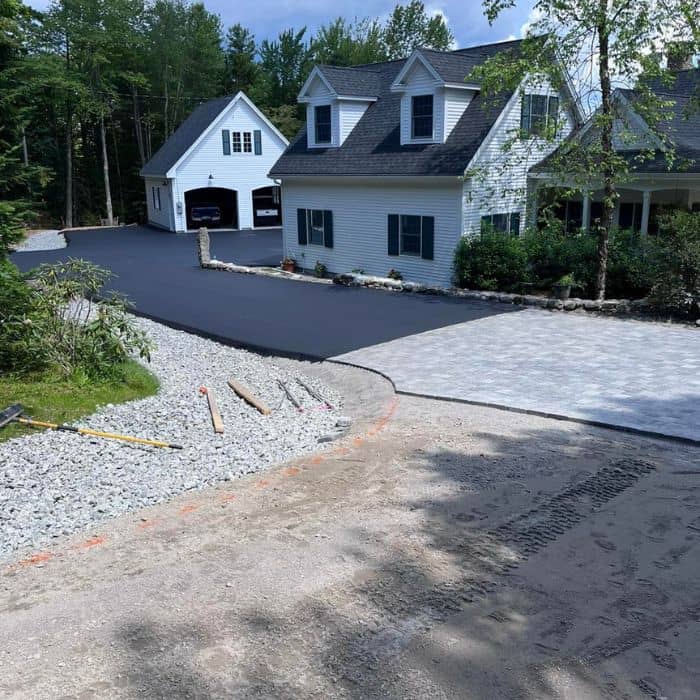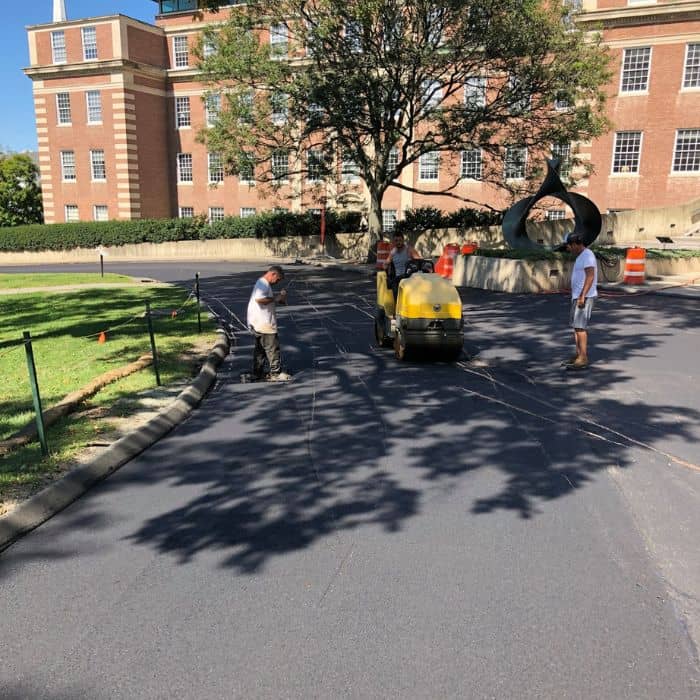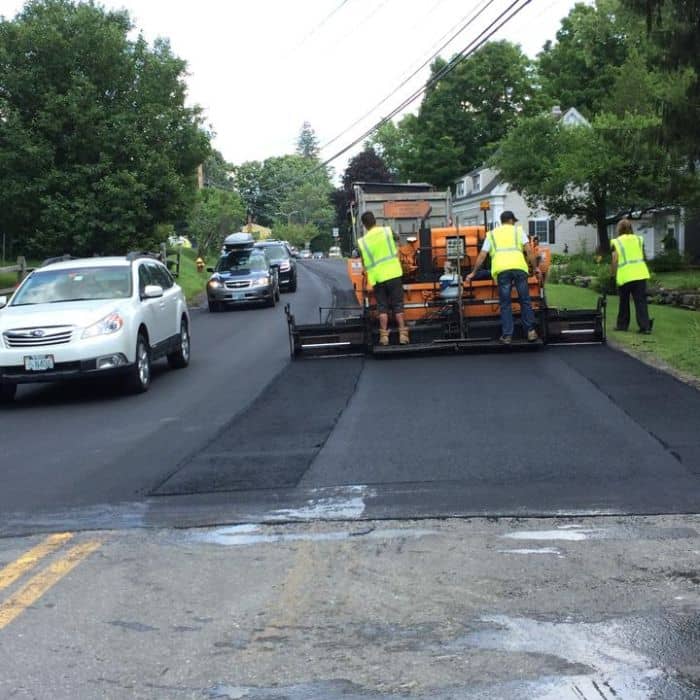
For many homeowners in New Hampshire, a driveway is more than just a parking space—it’s an essential part of the property’s curb appeal and daily convenience. Asphalt has become the preferred choice for many because of its durability, affordability, and smooth finish. However, the real test of an asphalt surface begins when winter arrives. The cold temperatures, heavy snow, and freeze-thaw cycles that Hillsborough County is known for can put tremendous stress on driveways. Without proper care, these seasonal challenges can quickly lead to cracks, potholes, and costly repairs. That’s why maintainingasphalt driveways in Hillsborough County during the winter months is crucial to preserving their longevity and functionality.
This blog will explore the most common winter challenges asphalt driveways face in Hillsborough County and the practical solutions homeowners can use to minimize damage and extend the life of their investment.
Understanding Winter’s Impact on Asphalt
Asphalt is designed to be strong yet flexible, which makes it well-suited for New Hampshire’s climate. But the same properties that give it resilience also leave it vulnerable when conditions turn extreme.
- Freeze-Thaw Cycles: Water seeps into small cracks and freezes when temperatures drop, expanding and widening the cracks. When it thaws, the gaps remain, creating long-term structural weaknesses.
- Snow Accumulation: Heavy snow puts added pressure on the surface and makes removal a constant challenge.
- De-Icing Chemicals: While rock salt is commonly used to keep surfaces safe, it can penetrate asphalt and accelerate its deterioration.
- Plowing and Shoveling: Aggressive snow removal with sharp-edged tools or heavy plows can scrape off protective layers or cause gouges.
Understanding these issues is the first step in preventing them from cutting years off the life of a driveway.
The Challenge of Freeze-Thaw Cycles
One of the biggest threats to asphalt in Hillsborough County is the region’s fluctuating winter temperatures. Even a mild thaw followed by an overnight freeze can wreak havoc. When water seeps into unsealed cracks, freezes, and expands, the asphalt shifts and breaks apart. Over time, this creates potholes that compromise both the appearance and safety of the driveway.
The Solution: Crack Sealing Before Winter
The best defense is proactive maintenance. By sealing cracks in the fall, homeowners can prevent water from infiltrating the surface in the first place. Professional sealants remain flexible in cold temperatures, helping asphalt resist winter’s constant stress.
Snow and Ice Management
New Hampshire winters can bring significant snowfall, and Hillsborough County often sees repeated storms in a single season. Removing snow is necessary for safety, but how it’s done matters greatly for the health of an asphalt driveway.
- Metal vs. Plastic Shovels: While metal shovels are sturdy, they often scrape asphalt and remove protective coatings. A plastic shovel is far less likely to cause surface damage.
- Snow Blowers: These are effective tools for clearing large areas without applying direct pressure to the asphalt.
- Plowing Caution: Driveway plowing is common, but operators should keep plow blades slightly raised to avoid gouging the surface.
The Solution: Gentle and Consistent Removal
Frequent but careful snow removal helps reduce weight on the driveway while minimizing physical damage from shovels or plows.
Ice Control: Safe Alternatives to Rock Salt
Slippery driveways pose serious hazards, but traditional rock salt isn’t always the best answer. Salt lowers the freezing point of water, but it also seeps into asphalt, breaking down the bonds that hold it together. Over time, this leads to flaking, crumbling, and more severe damage.
The Solution: Use Alternative De-Icers
Safer alternatives such as calcium magnesium acetate or sand provide traction and ice control without causing chemical damage. These solutions are also less harmful to pets, plants, and nearby water sources.
The Hidden Threat of Drainage Issues
When snow begins to melt, where the water flows—or doesn’t flow—can make a big difference. Driveways with poor drainage are more likely to collect standing water, which can seep into asphalt and freeze again, worsening cracks and potholes.
The Solution: Ensure Proper Drainage
Before winter arrives, homeowners should inspect their driveways for low spots or blocked drainage paths. Simple fixes, such as clearing debris from drains or grading the driveway slightly, can help direct water away from vulnerable areas.
Potholes: A Winter Headache
Once cracks deepen and water repeatedly freezes and thaws, potholes inevitably form. Beyond being unsightly, potholes are safety risks for vehicles and pedestrians. The longer they’re left unaddressed, the larger and more expensive they become to repair.
The Solution: Prompt Repairs
Cold patch asphalt is a temporary solution that can fill potholes during winter. While not as durable as hot mix asphalt used in warmer weather, it helps maintain safety until permanent repairs can be made in spring.
Long-Term Strategies to Extend Driveway Life
While seasonal fixes are important, long-term strategies provide the greatest protection against winter damage.
- Sealcoating: Applying a sealcoat every few years protects the asphalt from moisture, UV rays, and chemical damage.
- Regular Inspections: Checking for cracks and drainage issues each fall ensures the driveway is ready for winter.
- Professional Maintenance: Local contractors have the expertise and equipment to address issues effectively and recommend preventative care.
These steps not only extend the lifespan of asphalt driveways but also save homeowners money by reducing the need for full replacements.
The Role of Professional Help
While homeowners can handle basic maintenance like clearing snow or using safer de-icing methods, larger tasks such as crack sealing, sealcoating, or structural repairs require professional expertise. Contractors in Hillsborough County understand the local climate and can provide tailored solutions that keep driveways strong despite repeated winters.
Final Thoughts
Asphalt driveways add value and convenience to homes in Hillsborough County, but winter brings unique challenges that can shorten their lifespan if left unaddressed. From freeze-thaw cycles and heavy snow to the damaging effects of salt and poor drainage, asphalt faces constant pressure during the coldest months. The good news is that with proactive care—such as crack sealing, careful snow removal, and the use of safer de-icers—homeowners can minimize damage and keep their driveways in excellent condition.
For long-lasting results, professional support makes all the difference. When it comes to repairs, sealing, or preventative care, working with experiencedpaving contractors in Hillsborough County ensures that your driveway can withstand winter year after year while maintaining both function and curb appeal.








